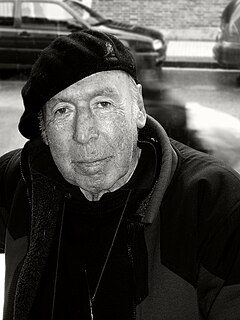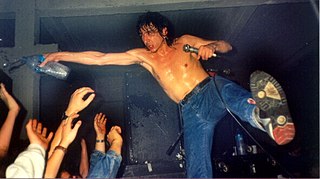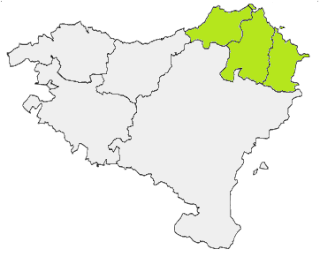Rock and roll is a genre of popular music that originated and evolved in the United States during the late 1940s and early 1950s from musical styles such as gospel, jump blues, jazz, boogie woogie, and rhythm and blues, along with country music. While elements of what was to become rock and roll can be heard in blues records from the 1920s and in country records of the 1930s, the genre did not acquire its name until 1954.
The music of Louisiana can be divided into three general regions: rural south Louisiana, home to Creole Zydeco and Old French, New Orleans, and north Louisiana. The region in and around Greater New Orleans has a unique musical heritage tied to Dixieland jazz, blues, and Afro-Caribbean rhythms. The music of the northern portion of the state starting at Baton Rouge and reaching Shreveport has similarities to that of the rest of the US South.
The music of Hawaii includes an array of traditional and popular styles, ranging from native Hawaiian folk music to modern rock and hip hop. Hawaii's musical contributions to the music of the United States are out of proportion to the state's small size. Styles like slack-key guitar are well-known worldwide, while Hawaiian-tinged music is a frequent part of Hollywood soundtracks. Hawaii also made a contribution to country music with the introduction of the steel guitar. In addition, the music which began to be played by Puerto Ricans in Hawaii in the early 1900s is called cachi cachi music, on the islands of Hawaii.
The music of France reflects a diverse array of styles. In the field of classical music, France has produced a number of prominent romantic composers, while folk and popular music have seen the rise of the chanson and cabaret style. The earliest known sound recording device in the world, the phonautograph, was patented in France by Édouard-Léon Scott de Martinville in 1857. France is also the 5th largest market by value in the world, and its music industry has produced many internationally renowned artists, especially in the nouvelle chanson and electronic music.

The music of Greece is as diverse and celebrated as its history. Greek music separates into two parts: Greek traditional music and Byzantine music, with more eastern sounds. These compositions have existed for millennia: they originated in the Byzantine period and Greek antiquity; there is a continuous development which appears in the language, the rhythm, the structure and the melody. Music is a significant aspect of Hellenic culture, both within Greece and in the diaspora.

Basque music refers to the music made in the Basque Country, reflecting traits related to its society/tradition, and devised by people from that territory. While traditionally more closely associated to rural based and Basque language music, the growing diversification of its production during the last decades has tipped the scale in favour of a broad definition.

Fermin Muguruza is a Basque rock musician, singer, songwriter, producer, record label manager, and co-founder of the ska punk band Kortatu, active from 1983 to 1988, and of the crossover group Negu Gorriak, active from 1990 to 1996.

Mikel Laboa Mancisidor was one of the Basque Country's most important singer-songwriters.

Bertsolaritza[berˈts̺olaɾits̻a] or bertsolarism is the art of singing extemporaneously composed songs in Basque according to various melodies and rhyming patterns. Bertsos can be composed at a variety of occasions but are performed generally by one or various bertsolaris onstage in an event arranged for the purpose or as a sideshow, in homage ceremonies, in benefit lunches and suppers, with friends or at a competition. Such a sung piece of composition is called a bertso, the person who sings it is called a bertsolari and the art of composing bertsos is called bertsolaritza in Basque. Traditionally these were sung by men but there is an increasing number of young female bertsolaris today.

The xirula is a small three holed woodwind instrument or flute usually made of wood akin to the Basque txistu or three-hole pipe, but more high pitched and strident, tuned to D/G and an octave higher than the silbote. The sound that flows from the flute has often been perceived as a metaphor for the tweet cadences of bird songs. Some scholars point out that flutes found in the Caverns of Isturitz and Oxozelaia going back to a period spanning 35,000 to 10,000 years ago bear witness to the early presence of the instrument's forerunner in the region, while this view has been disputed.

Although the first instances of coherent Basque phrases and sentences go as far back as the San Millán glosses of around 950, the large-scale damage done by periods of great instability and warfare, such as the clan wars of the Middle Ages, the Carlist Wars and the Spanish Civil War, led to the scarcity of written material predating the 16th century.

Basque Radical Rock, was a musical genre born in the Southern Basque Country at the beginning of the 1980s and, although there was no specific event, it is considered to have ended in the last years of the decade. Basque Radical Rock bands were particularly influenced by punk bands like Sex Pistols and The Clash. It was considered an underground movement, born in opposition to the values proclaimed by Francisco Franco and spread by thousands of people who felt with the Spanish transition to democracy their Basque national and social aspirations were betrayed.

Kalakan is a music band from the northern Basque Country composed of Thierry Biscary, Jamixel Bereau and Xan Errotabehere. It is characterized by minimalist arrangements of Basque traditional songs. After having collaborated and toured Europe with pianists Katia et Marielle Labèque, the trio become more widely known when they collaborated with Madonna during The MDNA Tour.

Joxe Azurmendi Otaegi is a Basque writer, philosopher, essayist and poet. He has published numerous articles and books on ethics, politics, the philosophy of language, technique, Basque literature and philosophy in general.

The Basque Country is a cross-border cultural region that has a distinctive culture including its own language, customs, festivals, and music.
Cambodian rock of the 1960s and 1970s was a thriving and prolific music scene based in Phnom Penh, Cambodia, in which musicians created a unique sound by combining traditional Cambodian music forms with rock and pop influences from records imported into the country from Latin America, Europe, and the United States. U.S. armed forces radio that had been broadcast to troops stationed nearby during the Vietnam War was also a primary influence. This music scene was abruptly crushed by the Khmer Rouge communists in 1975, and many of its musicians disappeared or were executed during the ensuing Cambodian genocide. Due to its unique sounds and the tragic fate of many of its performers, the Cambodian rock scene has attracted the interest of music historians and record collectors, and the genre gained new popularity upon the international release of numerous compilation albums starting in the late 1990s.















